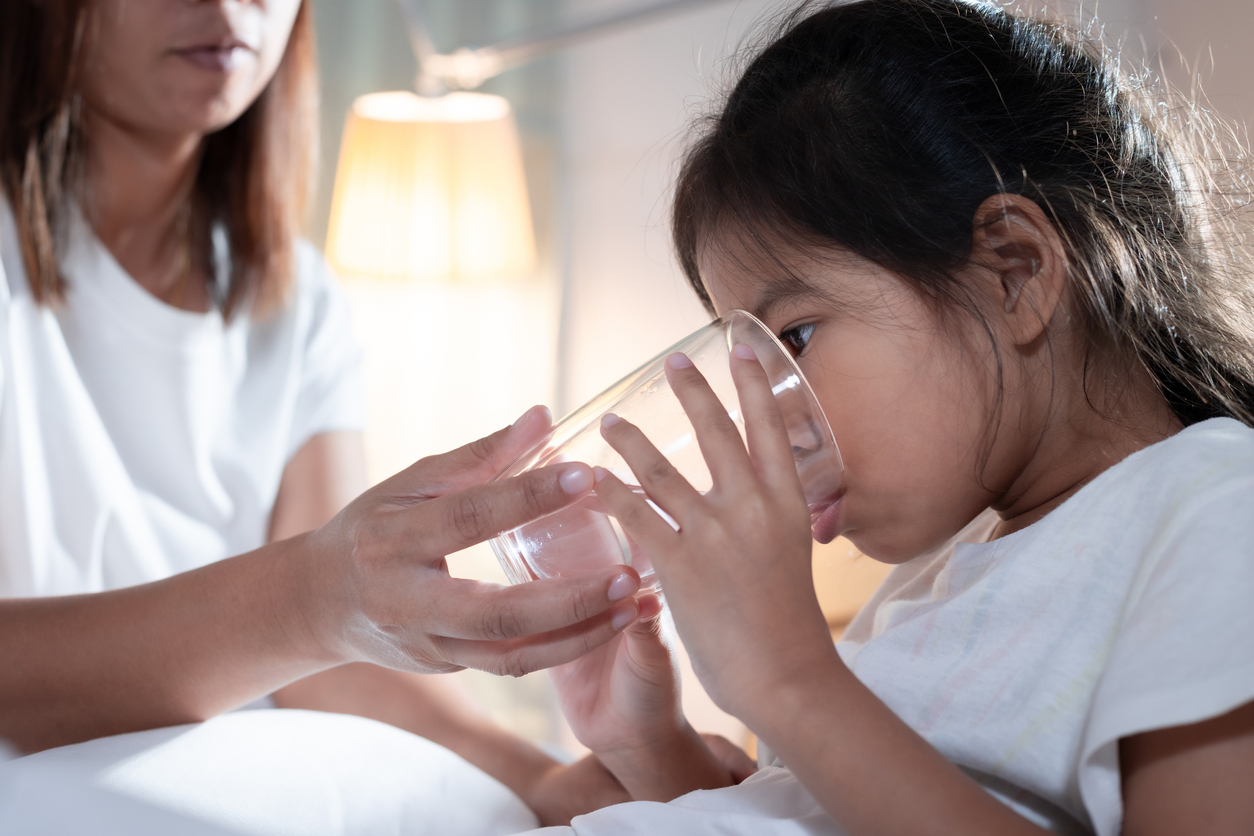Dehydration
What is it?
The human body needs water to maintain enough blood and other fluids to function properly. If the body loses much more fluid than what is consumed, dehydration occurs. Fluids are lost from the body during the following: urination vomit or lose stools sweat breathing, especially during rapid breathing overexertion in hot or humid weather feverAlong with the fluids, the body also loses electrolytes (mineral salts).
What are the causes?
The usual causes of dehydration are diarrhoea and vomiting. Dehydration can also occur if one does not eat or drink much during an illness or if one does not drink enough during or after strenuous exercise. Medications that control excess body fluid (diuretics) by causing fluid loss are a common long-term cause. Although anyone can become dehydrated, those who become dehydrated the most easily are: babies less than 1 year old the elderly anyone who has a fever people in hot weather
What are the symptoms?
Symptoms of early or mild dehydration include: flushed face extreme thirst dry, warm skin small amounts of dark, yellow urine dizziness made worse when one stands weakness cramping in the arms and legs crying with few or no tears headache dry mouth with thick salivaSymptoms of moderate to severe dehydration include: low blood pressure fainting severe muscle contractions in the arms, legs, stomach, and back convulsions a bloated stomach sunken eyes with few or no tears lack of skin elasticity (a bit of skin lifted up takes a long time to go back to its normal position) rapid and deep breathing
What is the treatment?
If there is mild dehydration, one needs to drink enough liquid to replace the fluids lost. Also, the electrolytes need to be replaced. Drinking sips of water slowly, along with eating a balanced diet, high in salt, will replace fluids and salts lost. Nonprescription medicines are available that help replenish fluids and electrolytes. Fluids and electrolytes can be replaced by drinking oral rehydration solutions (ORS). Packets of oral rehydration salts are widely available. One needs to just mix the contents of a packet with 1 litre of drinking water. An oral rehydration solution can be made at home using the following recipe: To 1 litre of drinking water or boiled water, add the following: 2 tablespoons sugar 1/4 teaspoon salt 1/4 teaspoon baking soda (bicarbonate of soda)If baking soda is not available, add another 1/4 teaspoon of salt. If possible, add 1/2 cup orange juice or some mashed banana to improve the taste and provide some potassium. Drink sips of the ORS every 5 minutes until urination becomes normal. Adults and older children should drink at least 3 litres of ORS a day until they are well. If there is vomiting, keep trying to drink the ORS. In case of severe dehydration, one needs to go to an emergency room or other health care facility to get intravenous (IV) fluids. If possible , continue drinking the ORS too.
What are the prevention?
If a person has diarrhoea or vomiting or is not drinking enough fluids, then he must be forced to drink more liquids before he becomes dehydrated. If someone is becoming dehydrated, follow these guidelines: Give more liquids than usual. Remember that a dehydrated person will have less appetite. Encourage him to eat and drink small amounts of food and liquids 5 to 7 times a day. Watch for signs of severe dehydration and get medical help as soon as possible.
Dehydration News More News
Dehydration Health Photos More Photos
................... Advertisement ...................
................... Advertisement ...................
................... Advertisement ...................
................... Advertisement ...................























